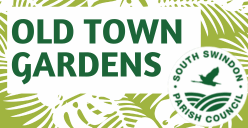In case you missed it see what’s in this section
Let's Talk
Fun Math Family Activities - Engage And Learn Together
As a parent, you play a crucial role in your child's education, and making math for kids fun can be a game-changer. Engaging in math activities as a family not only strengthens the bonds between parents and children but also helps kids develop essential math skills. In this comprehensive guide, we'll explore a wide variety of exciting math activities that you can enjoy together, both indoors and outdoors.
Introduction to Fun Math Family Activities
Mathematics is a subject that permeates every aspect of our daily lives. From cooking and budgeting to home improvement and planning vacations, math plays a fundamental role. So why not make learning math enjoyable for your family? In this guide, we'll delve into the world of fun math family activities that not only educate but also entertain.
Why Engage in Math Activities as a Family?
Math can be a daunting subject for many children, leading to math anxiety. By involving your family in math-related activities, you can:
- Enhance Math Skills: Boost your child's mathematical abilities in an enjoyable way.
- Strengthen Family Bonds: Create memorable moments while learning together.
- Build Confidence: Conquer math anxiety and foster a love for numbers.
Outdoor Math Adventures
Getting outside and exploring nature provides an excellent opportunity to incorporate math into your family's activities.
Nature Scavenger Hunt with Math Twist
A nature scavenger hunt with a mathematical twist is a fantastic way to combine the joy of exploration with mathematical concepts. Here's how to do it:
Create a list of natural items for your child to find. Include items like leaves, rocks, sticks, flowers, or even specific insects or birds if you're feeling adventurous.
Assign point values to each item based on factors like size, color, or shape. For example, a red leaf might be worth more points than a green one, or a pinecone could earn extra points for its unique shape.
Equip your child with a small bag or basket and the list of items and point values.
As your child explores, they can collect the treasures and tally the points.
This activity encourages observation skills, critical thinking, and simple arithmetic as your child calculates their total points.
Measuring and Estimating in the Garden
Gardening provides a wealth of opportunities to incorporate math into outdoor activities. Here are some ideas:
Plant Spacing: When planting seeds or young plants, discuss the appropriate spacing between them. Use a ruler or a tape measure to ensure proper placement.
Measuring Growth: As plants grow, measure their height or the length of their leaves and compare these measurements over time.
Estimating Garden Yield: Ask your child to estimate how many vegetables or fruits they think your garden will produce. Later, you can compare their estimate to the actual harvest.
Garden Area: Calculate the area of different sections of your garden. Discuss how this information could be used to determine the amount of soil, mulch, or fencing needed.
Math Fun in the Kitchen
The kitchen is a fantastic place to explore math concepts while preparing delicious meals together.
Baking and Fractions: Making Math Delicious
Baking offers a perfect opportunity to introduce fractions in a fun and practical way. Here's how:
Choose a simple baking recipe that requires measurements in fractions, such as 1/2 cup of sugar or 1/4 teaspoon of salt.
As you gather ingredients, explain what each fraction means and how it relates to the whole. For example, 1/2 is half of something, and 1/4 is a quarter of something.
Involve your child in measuring and combining ingredients according to the recipe's instructions. Encourage them to visualize the fractions as they work.
As you enjoy the delicious baked goods together, discuss how fractions are a fundamental part of cooking.
This hands-on approach not only teaches fractions but also reinforces the idea that math can be both enjoyable and practical.
Cooking Up Math Word Problems
Incorporate math word problems into your cooking routine. Here's how:
Present your child with a math-related scenario, such as "We're having four guests for dinner, and the recipe serves two. How much should we adjust the ingredients?"
Encourage them to think critically and solve the problem. This not only reinforces math skills but also teaches problem-solving and logical reasoning.
As you prepare the meal, discuss the solution and how it applies to real-life situations.
By cooking up math word problems, you demonstrate that math is not confined to textbooks but is a valuable tool for everyday decision-making.
Game Nights with a Math Twist
Family game nights are a classic way to bond and have fun, but you can also use these gatherings to boost math skills.
Board Games That Boost Math Skills
Many board games incorporate math concepts, making them both entertaining and educational. Consider including games like:
- Monopoly: This classic board game involves money, properties, and strategic thinking, which can help children develop mathematical and financial skills.
- Chess: Chess requires critical thinking, spatial reasoning, and planning, making it an excellent game for enhancing math-related cognitive skills.
- Scrabble: Scrabble involves word formation and point calculation, encouraging players to think mathematically about language.
These games not only provide opportunities to practice math but also strengthen strategic thinking and decision-making abilities.
Crafting Mathematical Art
Art and math have more in common than you might think. Combining them can be both creative and educational.
Creating Geometric Artwork
Geometry is a branch of mathematics that deals with shapes, sizes, and properties of figures. Here's a simple activity to introduce geometric concepts:
Provide your child with colored paper, a ruler, and a compass (or something round, like a cup).
Encourage them to create geometric designs by drawing shapes like circles, triangles, squares, and rectangles.
Discuss the characteristics of each shape, such as the number of sides and angles.
Encourage your child to experiment with combining shapes to create more complex geometric art.
Math-Inspired Origami and Paper Crafts
Origami, the Japanese art of paper folding, offers opportunities to explore mathematical concepts, especially geometry and symmetry. Here's how to get started:
- Find origami tutorials suitable for your child's age and skill level. There are many resources online and in books that offer step-by-step instructions.
- Work together to fold various origami figures, discussing the geometric properties involved in each fold.
- Explore symmetry in origami by folding symmetrical designs and discussing the concept of balance and mirror images.
Origami not only teaches geometry but also enhances fine motor skills, patience, and attention to detail.
Math Storytelling and Books
Storytelling and books provide a rich context for learning math in a fun and engaging way.
Bedtime Math: Making Numbers a Bedtime Tradition
Incorporating math into your nightly routine can be a relaxing and educational way to end the day. Books like "Bedtime Math" offer engaging math problems suitable for various age groups.
Select a math-themed book suitable for your child's age and reading level.
Read a math problem or story from the book before bedtime.
Encourage your child to solve the problem, discuss their reasoning, and share their answers.
This activity makes math a part of your family's nightly tradition and reinforces the idea that math is not just for the classroom but for everyday life.
Exploring Math Through Children's Literature
Many children's books incorporate math themes. Explore books like "The Doorbell Rang" by Pat Hutchins, which introduces division and sharing, or "The Greedy Triangle" by Marilyn Burns, which explores geometry and shape transformations.
Choose age-appropriate math-themed books that align with your child's interests and math level.
Read these books together and discuss the mathematical concepts introduced in the stories.
Encourage your child to think about how these math concepts relate to their own experiences.
By integrating math into storytelling, you can make learning math both entertaining and relatable.
Virtual Math Resources for Family Learning
In today's digital age, there is a wealth of online resources that can enhance your family's math education.
Online Math Games and Apps
Educational websites and apps offer interactive math games that can be both entertaining and instructive. These games cover various math topics, from basic arithmetic to more advanced concepts like algebra and geometry.
Explore educational websites and apps that offer math games suitable for your child's age and skill level.
Set aside dedicated time for your child to play these games, and consider participating together as a family.
Discuss the math concepts introduced in the games and how they relate to real-life scenarios.
Online math games provide a dynamic way to reinforce math skills while having fun.
Exploring Math YouTube Channels
YouTube is a valuable resource for educational content. Many channels focus on math-related topics and offer engaging lessons and tutorials.
Find math-focused YouTube channels that are appropriate for your child's age and math level.
Watch videos together and engage in discussions about the math concepts covered.
Encourage your child to explore math on their own through these videos, as well.
By leveraging these online resources, you can make math learning more interactive and enjoyable for your family.
Conclusion: Strengthening Family Bonds Through Math Fun
Incorporating math into your family activities not only enhances your child's math skills but also creates lasting memories and strengthens the family bond. Math is not just a subject to study in school; it's a valuable tool that can be applied in countless real-life situations. By making math a fun and engaging part of your family's daily life, you empower your child with essential skills while enjoying quality time together.
As you embark on your mathematical adventure with your family in 2023, remember that the world is full of math waiting to be discovered and explored. So, gather your math tools, unleash your creativity, and let the learning and fun begin!
Weather in Swindon
Listings





















